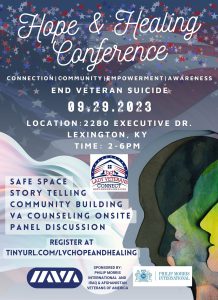Veterans, who have valiantly served their countries, often carry the weight of their experiences long after their military service has ended. Unfortunately, some veterans struggle with suicidal ideation, a complex and serious issue that requires attention and understanding. Recognizing the characteristics of a veteran who may be experiencing these thoughts is crucial to offering them the support and help they desperately need.

Unique Struggles Among Women Veterans Must Lead the Conversation When Defining Solutions
Women veterans in the United States who experience suicidal ideation often face unique and complex challenges that demand targeted support and intervention. These brave individuals have served their country, but their transition back to civilian life can be fraught with difficulties, including the potential for post-traumatic stress disorder (PTSD), military sexual trauma (MST), and a sense of isolation. The prevalence of MST, in particular, underscores the need for specialized mental health services, as it can lead to profound emotional scars. Additionally, women veterans may struggle with accessing appropriate healthcare due to gender-specific health concerns, such as gynecological and reproductive health issues, which must be addressed sensitively and comprehensively. To effectively address the mental health and well-being of women veterans experiencing suicidal ideation, it is crucial for healthcare providers and support networks to be attuned to these distinctive needs and provide them with tailored care, ensuring their service to the nation is honored with the care and attention they deserve.
Isolation and Withdrawal
One of the key characteristics of a veteran struggling with suicidal ideation is isolation. Many veterans may withdraw from social activities, avoid friends and family, and become increasingly distant. They may perceive themselves as burdens to others, which can lead to isolation as they try to protect their loved ones from their inner turmoil.
Emotional Instability
Veterans grappling with suicidal ideation often experience emotional instability. They may oscillate between extreme anger, sadness, hopelessness, and numbness. These emotional fluctuations can be challenging for both the veteran and those around them to handle, making it important to approach them with empathy and patience.
Difficulty Coping with Trauma
Many veterans have faced traumatic experiences during their service, and those struggling with suicidal ideation may find it exceptionally difficult to cope with these memories. Flashbacks, nightmares, and intrusive thoughts can be distressing, leading them to contemplate suicide as a way to escape their emotional pain.
Substance Abuse
Substance abuse often co-occurs with suicidal ideation among veterans. Some may turn to drugs or alcohol as a way to self-medicate, trying to numb their emotional pain. This can exacerbate their mental health issues and increase the risk of self-harm.
Change in Behavior
A significant shift in behavior is another indicator. A veteran who was once outgoing and social might become withdrawn and secretive. Conversely, they might become reckless, engaging in high-risk behaviors as a way to cope with their emotional struggles.
Giving Away Possessions
Some veterans contemplating suicide may give away cherished possessions or make arrangements for their belongings, as they believe they will no longer need them. This can be a subtle warning sign that should not be ignored.
Expressing Hopelessness
Veterans struggling with suicidal ideation may express a deep sense of hopelessness. They might verbalize thoughts like, “I can’t go on,” or “I’m a burden to everyone.” These statements should be taken seriously, as they often indicate a cry for help.
Social Disconnection
An abrupt disconnection from social networks, such as leaving support groups, ending therapy, or distancing themselves from fellow veterans who understand their experiences, can be a concerning sign. These connections often serve as crucial lifelines for veterans.
Recognizing the characteristics of a veteran struggling with suicidal ideation is a vital step in preventing the tragic loss of a life that has already sacrificed so much in service to their country. If you encounter a veteran displaying these signs, it’s essential to reach out, provide support, and connect them with mental health professionals and support networks. Timely intervention and empathy can make a profound difference, helping veterans find hope and healing in their lives once again. Remember, it’s never too late to offer help and show gratitude for their service by ensuring their well-being is a top priority.
To learn more about our programs and other organizations in your corner, please attend the Hope & Healing Conference September 29th, 2023 from 2-6pm EST. Located at the KHSAA 2280 Executive Drive, Lexington, KY. Register today to save your spot – tinyurl.com/lvchopeandhealing


